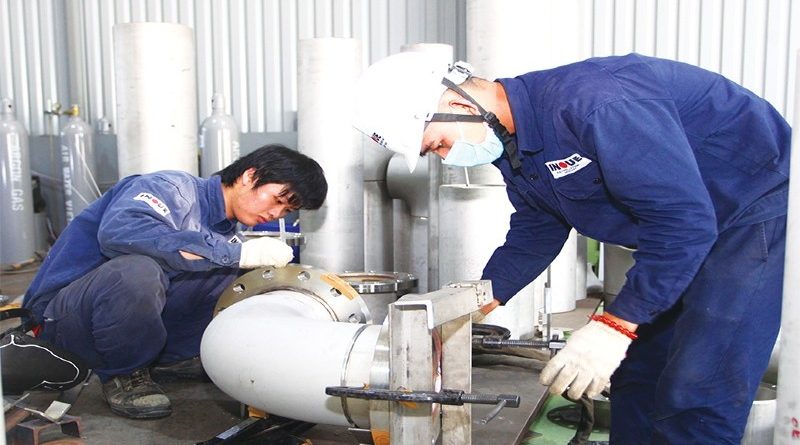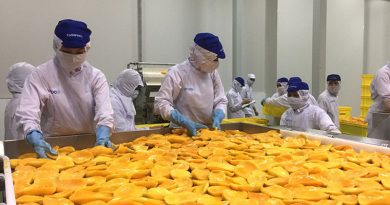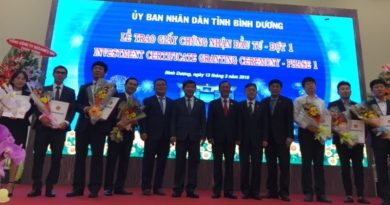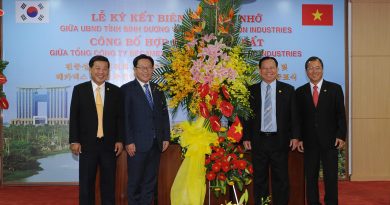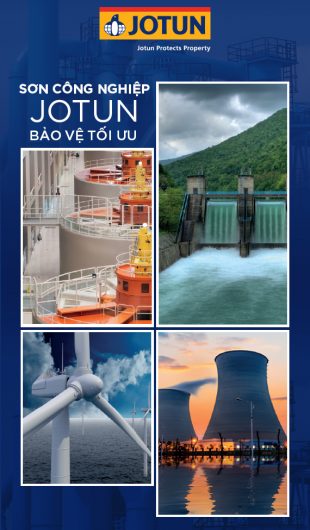Japanese ramping up investment in Vietnam
More concerted efforts are being made to lure new high-quality investments from Japan and turn Vietnam into a real hub for manufacturers as investors are looking to relocate their factories to avoid risks and diversify markets.
As one of the early birds exploring business in Vietnam, aerospace and healthcare manufacturer Nikkiso Vietnam in late July decided to expand its production by $3 million.
As a subsidiary of Nikkiso Group, Nikkiso Vietnam was established in 1996 and placed its production base in Ho Chi Minh’s Tan Thuan Industrial Park (IP). A modern production line and Nikkiso’s know-how have made it possible for the Vietnam branch to manufacture high-quality medical products, including blood tubes for dialysis treatments.
Nikkiso Vietnam legal representative Satoshi Okawa said, “Although the group had a facility in Thailand, it still decided to expand its production in Vietnam as one solution to reduce risks while value chains were disrupted by COVID-19.”
This year many Japanese enterprises showed ambition to establish new projects and expand existing business in Vietnam, demonstrating the country’s position as an attractive destination for foreign investors.
New investment wave
According to the Japan External Trade Organization (JETRO), there are 15 Japanese enterprises currently registered to invest in Vietnam in an attempt to diversify supply chains, strengthen cooperation between Japan and the ASEAN, and move out of China.
“In the past, Japan has based its supply chains in China and South Korea, but in recent years expanded to ASEAN countries, thereby expanding its supply chains to more than just one location,” said a JETRO representative.
Amid the pandemic, Japan issued a support package of ¥243.5 billion ($2.23 billion) to help manufacturers shift production out of China as the health crisis disrupted supply chains between major trading partners, including Vietnam.
Masahico Makata, CEO of Long Duc Investment Co., Ltd., said that the company’s Long Duc IP in the southern province of Dong Nai has attracted investment since 2013. Up to now, more than 200 hectares for industrial development have been rented out. Meanwhile, many Japanese enterprises want to continue investment, so the company has proposed procedures for the expansion of Long Duc IP.
Meanwhile, Lixil Global Manufacturing Vietnam Co., Ltd. has increased its investment capital by $25 million in Dong Nai where in 2014, the company developed a project with the total investment of more than $440 million, built on an area of 55ha. The project manufactures all kinds of door frames, windows, and accessories made of aluminium and plastic for civil and industrial constructions.
Explaining the reason for Japanese business expansion in Vietnam, Wakamatsu Hiroyuki, director of Chubu Rika Vietnam said, “Labour is the main attraction of the country as labour costs are cheaper compared to China, while the quality is very good. Therefore, products made at factories in Vietnam meet high-quality requirements while production costs remain very reasonable.”
Hiroyuki added, “The investment of Japanese enterprises in Vietnam is increasing and their aim is also to provide products for Japanese consumers.”
Chubu Rika Vietnam currently has four factories with its main products used for machinery and vehicle parts.
Key to success
As Vietnam is considered to be an attractive location for Japanese investors, they have established a strategy in order to carry out business here called the “1+1 model”.
Accordingly, Japanese investors are cooperating with enterprises that have already invested in Vietnam to form a production chain in IPs. These activities also receive support from banks and localities.
Additionally, the model creates an ecosystem for Japanese businesses. Hanoi-based Thang Long IP, funded by Japan’s Sumitomo Group, for instance attracted about 100 projects with total capital of $2.5 billion by using this model, mostly in the technology sector.
Aguin Tooru, chief representative at the Japan Bank for International Cooperation said, “More than 100 Japanese enterprises submitted documents for investments in Vietnam, and our bank will continue to support them.”
Meanwhile Makata from Long Duc said that the JETRO’s support, which includes information, specialists, and technicians, has also contributed to Japanese investors’ success in Vietnam.
According to the JETRO representative, besides traditional investment sectors like manufacturing, Japanese investors are also grasping onto new sectors such as healthcare, clean energy, and customer services.
Vu Tien Loc, chairman of the Vietnam Chamber of Commerce and Industry, suggested that the country should create a sufficient plan in order to upgrade its skilled labour force, and added that cooperating with internal associations will be a necessary step to further attract Japanese investors.
Source: vnexplorer.net




